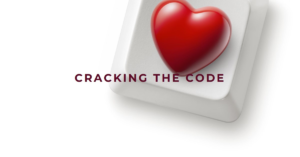
Pain is not just a personal experience but a condition that can profoundly affect family dynamics and relationships. Whether chronic or acute, pain treatment can permeate every aspect of family life, influencing roles, communication, and emotional well-being. Understanding these dynamics is crucial for both individuals experiencing pain and their loved ones to navigate challenges effectively.
The Impact of Pain on Family Roles
When a family member experiences pain, roles within the household often shift. The individual in pain may become more dependent on others for daily tasks, leading to role reversals where caregivers take on responsibilities they didn’t previously have. This shift can strain relationships as both parties adjust to new expectations and challenges.
For example, a parent suffering from chronic back pain may find it difficult to engage in physical activities with their children, altering the usual dynamics of play and bonding. Meanwhile, children may take on more responsibilities around the house, impacting their own development and relationship with their parents.
Communication Challenges and Emotional Strain
Effective communication is essential in any relationship, but pain can create barriers that hinder open dialogue within families. Individuals in pain may struggle to articulate their needs or emotions, leading to frustration and misunderstanding among family members. Conversely, caregivers may feel overwhelmed by their responsibilities and struggle to express their own concerns or needs for support.
Emotional strain is also prevalent in families dealing with pain. Caregivers may experience feelings of guilt, stress, or burnout as they navigate the demands of caregiving alongside their own personal and professional responsibilities. Meanwhile, individuals in pain may experience depression, anxiety, or isolation due to their condition, further complicating family dynamics.
Building Support and Resilience
Despite these challenges, families can develop strategies to foster support and resilience in the face of pain:
- Open Communication: Encourage honest and empathetic communication within the family. Establishing a safe space for expressing emotions and concerns can strengthen relationships and reduce misunderstandings.
- Shared Decision-Making: Involve everyone in the family in decision-making processes related to pain management and daily routines. This fosters a sense of inclusion and empowerment for all members.
- Seeking Professional Help: Consider family therapy or counseling to address underlying issues and develop coping strategies together. A trained therapist can facilitate discussions and provide guidance on managing emotional and practical challenges.
- Education and Understanding: Educate family members about the nature of pain, its impacts, and available treatments. Increased knowledge can reduce stigma, improve empathy, and encourage proactive support.
- Self-Care for Caregivers: Encourage caregivers to prioritize their own well-being through self-care practices such as exercise, relaxation techniques, and seeking respite when needed. Healthy caregivers are better equipped to provide effective support.
The Role of Empathy and Adaptation
Empathy plays a crucial role in navigating pain within family dynamics. By actively listening to each other’s experiences and perspectives, family members can strengthen bonds and foster a supportive environment. Adaptation is also key; recognizing that roles and routines may need to evolve over time can help reduce stress and promote flexibility within the family unit.
Conclusion
In conclusion pain management significantly impacts family dynamics, influencing roles, communication, and emotional well-being. By understanding these dynamics and implementing strategies for support and resilience, families can navigate challenges more effectively. Empathy, open communication, and a collaborative approach to care are essential in fostering healthy relationships and managing the complexities of pain within the family unit.
Addressing pain within the context of family dynamics requires patience, understanding, and a willingness to adapt. With proactive support and a united approach, families can strengthen their bonds and enhance their ability to cope with the challenges of living with pain.


























